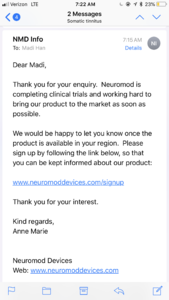le happy merchant.jpgThe clinicaltrials.gov website has the estimated primary completion date as September 2022 and the estimated study completion date as January 2023. Four years from now. How can it possibly take that long?
literally dude, there are people in the FDA that want to hold back bio-medical research and scientific advancements. Lobbyist are everywhere.

 Member
Member
